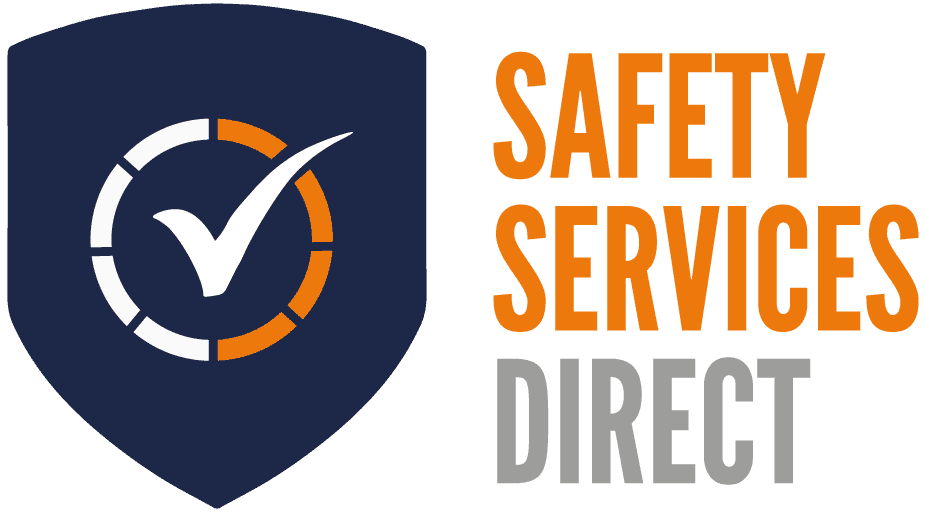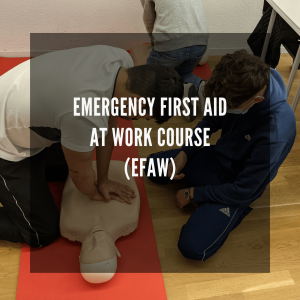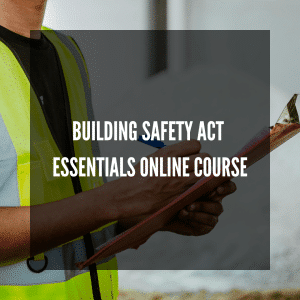To stay on top of the competition in today’s market, accreditation is crucial. And in the world of health and safety, ensuring that your organisation, suppliers and contractors meet the same safety standards is paramount. This is where SSIP Accreditation comes in.
In this blog, Safety Services Direct will delve into the meaning of SSIP, the SSIP certification process, its benefits, and our role in helping organisations achieve and maintain safety standards and accreditation.
SSIP Meaning
SSIP stands for Safety Schemes in Procurement. It is an accreditation scheme that evaluates and certifies suppliers and contractors, primarily in the construction industry. SSIP serves as a stamp of approval, signifying that an organisation adheres to robust international safety practices.
SSIP isn’t an accreditation in itself. Instead, it’s an umbrella organisation that combines several different health and safety schemes and combines them to create a single accreditation process: SSIP accreditation. There are SSIP member schemes to ensure health and safety competence across the board.
The SSIP Certification Process
Obtaining SSIP certification can be tricky, as organisations need to meet a range of specific criteria and standards in order to demonstrate their commitment to safety. These criteria often include health and safety policies, risk assessments, incident reporting procedures, and the implementation of effective health and safety management systems.
The certification process is generally made up of the 3 A’s: Application, Assessment and Accreditation. Let’s look at these in greater detail:
- Application: Organisations complete and submit their application for SSIP certification with an SSIP member scheme.
- Assessment: Accredited assessors thoroughly evaluate the organisation’s safety documentation and practices. During this assessment process, everything is done to ensure that the health and safety standards are SSIP-approved.
- Accreditation: Upon successful assessment, the organisation receives SSIP certification, signifying their compliance with the recognised safety standards of SSIP members.
Benefits of SSIP Certification
SSIP certification is not just a badge; it comes with tangible benefits. These include:
- Improved Safety: By adhering to SSIP standards, organisations create safer work environments, reducing the likelihood of accidents and injuries.
- Reduced Risks: SSIP-certified organisations are better equipped to identify and mitigate risks, which may lead to more efficient operation and cost savings.
- Enhanced Reputation: SSIP certification demonstrates a commitment to safety, which will strengthen an organisation’s reputation among clients, partners, and stakeholders.
- Competitive Advantage: Having an SSIP certificate can give organisations a competitive edge when bidding for contracts, as it instils confidence in clients.
Key Components of SSIP Assessment
As we’ve discussed, Safety Schemes in Procurement (SSIP) is not a single standard but a mutual recognition scheme in the United Kingdom that acknowledges and accepts various health and safety assessment schemes and standards. As such, each recognised scheme within SSIP may have its own specific criteria and standards.
However, there are core criteria for SSIP, each of which plays a vital role in ensuring a safe working environment.
SSIP Core Criteria
- Health and Safety Policies: First and foremost, organisations seeking SSIP accreditation must have comprehensive health and safety policies in place. These policies should outline the organisation’s commitment to safety, including the responsibilities of employees and management.
- Risk Assessments: SSIP typically expects organisations to conduct thorough risk assessments that identify potential hazards in the workplace. These assessments should include strategies for risk mitigation and control.
- Incident Reporting: Organisations must have established procedures for reporting and managing workplace incidents, particularly in the construction industry. This includes documenting incidents, conducting investigations, and taking corrective actions to prevent recurrence.
- Safety Management Systems: SSIP often assesses an organisation’s safety management system, ensuring it’s well-structured and effective in overseeing safety practices, compliance, and continuous improvement.
- Compliance with Health and Safety Laws: Organisations must demonstrate compliance with relevant health and safety laws and regulations. This includes legal requirements related to workplace safety, equipment safety, and employee safety training.
- Training and Competency: SSIP criteria may include requirements for employee training and competency. Organisations must ensure their employees are adequately trained to perform their roles safely.
- Documentation and Records: Adequate documentation is crucial. Organisations should maintain all records of their health and safety policies, risk assessments, incident reports, safety training, and compliance with legal requirements.
- Management Commitment: SSIP may assess the commitment of an organisation’s management to prioritise and support safety initiatives. This includes visible leadership, resource allocation, and a safety-conscious culture.
The Role of Safety Services Direct in SSIP Accreditation
Navigating the SSIP certification process can be complex, but being accredited can put you in front of the queue when tendering for business, making it a worthwhile pursuit. Our SSIP Accreditation Service supports you in achieving the relevant accreditation (without the hassle) by providing SSIP scheme templates and submitting your company documentation on your behalf, leaving you with time to focus on delivering your core services rather than office paperwork exercises.
Our talented team of experts specialises in helping organisations achieve and maintain SSIP certification. Your health and safety executive will gain invaluable guidance, ensuring that your safety documentation is thorough, your practices are compliant, and your organisation is well-prepared for safety assessments!
What SSIP Accreditation Does SSD Offer?
We offer the following SSIP-related services:
-
- Health and Safety Advisory Service
- CHAS Accreditation And Application Help
- ConstructionLine Accreditation & Application Help
- SafeContractor Accreditation & Application Help
- SMAS Worksafe Accreditation & Application Help
- Achilles BuildingConfidence Application Help and Support
- CHAS Support Package
- SafeContractor Support Package
- SMAS Support Package
Ready for Health and Safety Compliance and More?
In a world where safety is paramount, SSIP Accreditation is a testament to an organisation’s commitment to safeguarding its workforce and stakeholders. Safety Services Direct is your trusted partner in achieving and maintaining SSIP certification. Together, we can build a safer, more secure future for your organisation and those you serve.
For more information on SSIP Accreditation and how Safety Services Direct can assist you, contact us or call us at 0121 756 6568.










